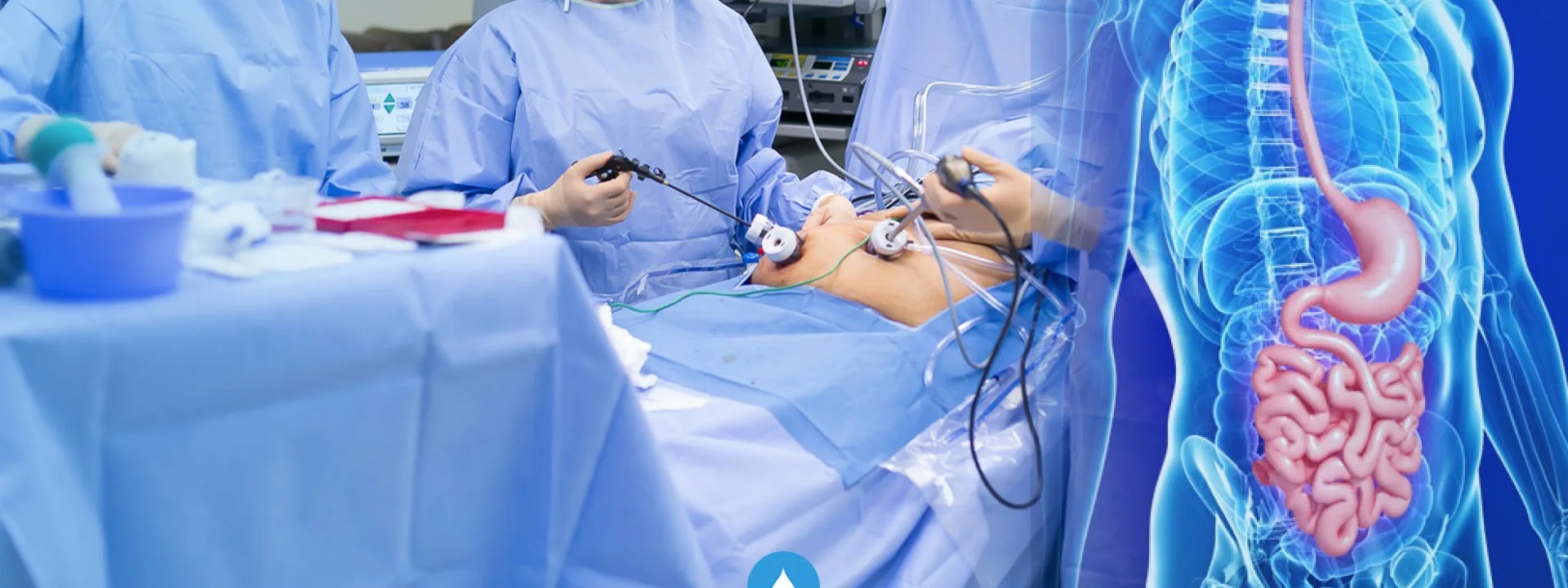
Gastroenterology
As a super-specialty involves management of patients suffering from disorders of digestive system and liver. These patients may be suffering from simple problems like indigestion, bloating, constipation, pain in abdomen, diarrhoea, jaundice or difficult problems like blood in the vomiting or stools, liver failure, cirrhosis, ascites, bile duct stones, cancers of gall bladder, pancreas, food pipe, stomach or intestine.
The mission of the Department of Gastroenterology at Iris Hospital is:
- To provide an exceptionally high level of clinical care and emergency services to the patients suffering from diseases of digestive system and liver,
- To provide comprehensive care which includes multidisciplinary approach by highly skilled team of Gastroenterologist, GI & HPB surgeon, Interventional Radiologist and Oncologist
- To do cutting edge clinical and translational research in the field of Gastroenterology and Hepatology
- To take initiative in increasing awareness among public of Charotar Belt in preventive aspects of gastrointestinal and liver diseases.
- Acute Or Chronic Hepatitis (Hepatitis A / E / B / C)
- Fatty Liver
- Cirrhosis Of Liver and Liver cancer
- Ascites (Accumulation of Fluid In The Abdomen)
- Difficulty in swallowing
- Repeated vomiting / chest pain
- Gall stone
- Chronic Diarrhoea
- Gastric Ulcers
- Blood In Stools / Vomit
- Frequent Abdominal Pain
- Loss Of Weigh
- Yellowing Of Eyes
- Ulcerative Colitis / Crohn’s Disease
- Abdominal Tuberculosis
- Acute / Chronic Pancreatitis
- Food Allergy
- Paediatric Constipation / Repeated Abdominal Pain / Diarrhoea
- Colon and pancreas / Gall Bladder cancer
- Advanced gastrointestinal endoscopy services, both diagnostic and therapeutic
- Upper GI endosco
- Colonoscopy
- Sigmodoscopy
- Capsule endoscopy
- Endoscopic variceal ligation
- Endoscopic sclerotherapy and glue injection
- Stenting and dilation for esophageal and colonic strictures (both benign and malignant)
- Achalasia cardia endoscopic dilatation
- Removal of intestinal polyp (polypectomy)
- Foreign body removal
- Percutaneous endoscopic gastrostomy (PEG) placement for feeding patients with swallowing difficulty
- Naso-jejunal tube placement for feeding of critically ill patients
- Piles banding
- Advanced biliary and pancreatic endoscopy services
- Endoscopi retrograde cholangio-pancreaticography (ERCP)
- Stenting for benign and malignant biliary and pancreatic duct strictures
- Endoscopic treatment for pancreatic pseudocyst
- Fibroscan of Liver
- Transient elastography (Fibroscan) of liver for non-invasive diagnosis of liver fibrosis
- Liver biopsy
- Percutaneous liver biopsy
- Trans-jugular liver biopsy
- Treatment for liver cancer
- Radio-frequency ablation (RFA)
- Trans-arterial chemo-embolization (TACE)
- Pre- and post-liver transplantation services
- Pre-liver transplant recipient and donor work-up
- Post-liver transplant Hepatology services
Dental Surgery | IRIS Hospital
OPD No. 108
Dr. Dhruval Patel
Monday to Saturdays
10 am to 1pm
3pm to 7 pm
Phone: 02692-288234 (by Appointments)
- Different facilities available include general ward (separate for male & female patients), private – single (with and without AC) & deluxe rooms and suite rooms.
- Fully equipped ICU facilities
- Fully equipped Trauma & Emergency centre
- In house advanced laboratory and radiological services
How do I prepare for a colonoscopy?
Preparation for a colonoscopy requires laxatives. A powder will be prescribed to you which will be reconstituted in 2 lit of water. The entire preparation is to be consumed within 2 hours. Alternatively, for early morning procedures, a split preparation is possible whereby half the dose is taken the previous night and half in the morning. This medication will result in loose motions over 5-8 times. This is the desired effect and will lead to expulsion of all the stools from the colon and will allow clearer visualization during the procedure. It is preferable to consume semi solid and a soft diet 1 day prior to the procedure.
How do I prepare for an upper GI endoscopy?
Patients are asked not to take any meals for at least 6 hours prior to a planned upper GI endoscopy. Tea and fruit juices are also not allowed in the 6-hour period. Clear liquids, eg: water may be taken till 2 hours prior to an endoscopy.
How soon can I resume my diet after an upper GI endoscopy?
You can resume your diet after 30 mins of an endoscopy. If sedation has been used, you have to wait for up to 2 hours. You will be informed about the resume of diet once the procedure is over.
I am very anxious about undergoing an endoscopy. Are endoscopies done with sedation?
It is natural to feel some anxiety prior to an endoscopy. An upper endoscopy done via the mouth can be done with or without sedation. It does not cause pain, but may cause some discomfort and nausea. Local (throat) anaesthesia is given in all cases. Additionally, further sedatives can also be provided. A colonoscopy is always done with sedation or anaesthesia.
Is endoscopy painful?
An endoscopy usually results in discomfort, fullness and sensation of retching. Pain is uncommon and some soreness in throat maybe expected.
Can children go under endoscopy?
Yes, endoscopy is safe for children. There are special instruments for children as they have smaller diameter of their digestive system. They usually undergo endoscopy in sedation.
